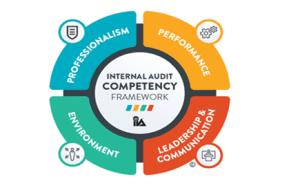Adding Value Across Board
Internal Audit Department
About Us
Key Functions of the internal Audit Department
Internal auditing is an independent, objective, assurance and consulting activity that adds value to and improves the Universities operations. It helps the institution to accomplish its objectives by bringing a systematic, disciplined approach to evaluate and improve the effectiveness of risk management, control, and governance processes .
Mission
"To provide dynamic leadership for the global profession of internal auditing. To Promote Internal Audit Profession, Protect the Interests of the Members and to Enhance Integrity, Relevance and Standards of the Internal Audit Profession in Kenya"
Vision
"To Facilitate Development of Corporate Governance in the Public and Private Sector Organizations in Kenya by Improved Financial Discipline and Control"
INTERNAL AUDIT CORE VALUES
Integrity
Objectivity

Confidentiality

Competency

Audit Scope
Competitive pressures demand that today’s organizations squeeze the most they can from all their resources, the internal audit process is clearly among the most critical. In addition to the Internal Audit Department responsibility for assessing and recommending internal controls, internal auditors’ skills in risk management and their broad-based perspective of the University’s uniquely position them as a valuable resource for strong corporate governance.
Internal Audit Vital to Governance
Internal auditors’ diverse capabilities bring tremendous value to the board and the audit committee in their corporate governance responsibilities and risk management oversight. Today’s audit committees must deal with complex and diverse issues and ever-increasing responsibilities. Audit committees are being asked to monitor such areas as: management’s assessment of internal controls over financial reporting; ethical complaint hotlines; enterprise-wide risk management; and governance. Internal auditors apply risk-based audit approaches to the organization’s internal control system and provide comprehensive reports to the audit committee.

The Core Principles for the Professional Practice of Internal Auditing
The Core principles, taken as a whole, articulate internal audit effectiveness. For an internal audit function to be considered effective, all Principles should be present and operating effectively. How the internal auditors, as well as an internal audit activity, demonstrates achievement of the Core Principles may be quite different from Institution to Institution, but failure to achieve any of the Principles would imply that an internal audit activity was not as effective as it could be in achieving internal audit’s mission .These are the core principles of the Internal Audit Team:
- Demonstrates integrity
- Demonstrates competence and due professional care
- Is objective and free from undue influence (independent)
- Aligns with the strategies, objectives, and risks of the organization
- Is appropriately positioned and adequately resourced.
- Demonstrates quality and continuous improvement
- Communicates effectively
- Provides risk-based assurance
- Is insightful, proactive, and future-focused
- Promotes organizational improvement
- Promotes organizational improvement.
- Is insightful, proactive, and future-focused.
- Promotes organizational improvement
Maasai Mara University Internal Audit Team

Phillip S. Wuantai, CPA.CS

Denis Gicchuru, CPA

Richard T. Saruni, CPA

Letoya Sammy, CPA

Saidimu Kimiti

Jane Kool

Justine Kisipan

Mary Muntet
For additional information, contact us:
THE CHIEF INTERNAL AUDITOR
MAASAI MARA UNIVERSITY
INTERNAL AUDIT DEPARTMENT
internalaudit@mmarau.ac.ke

